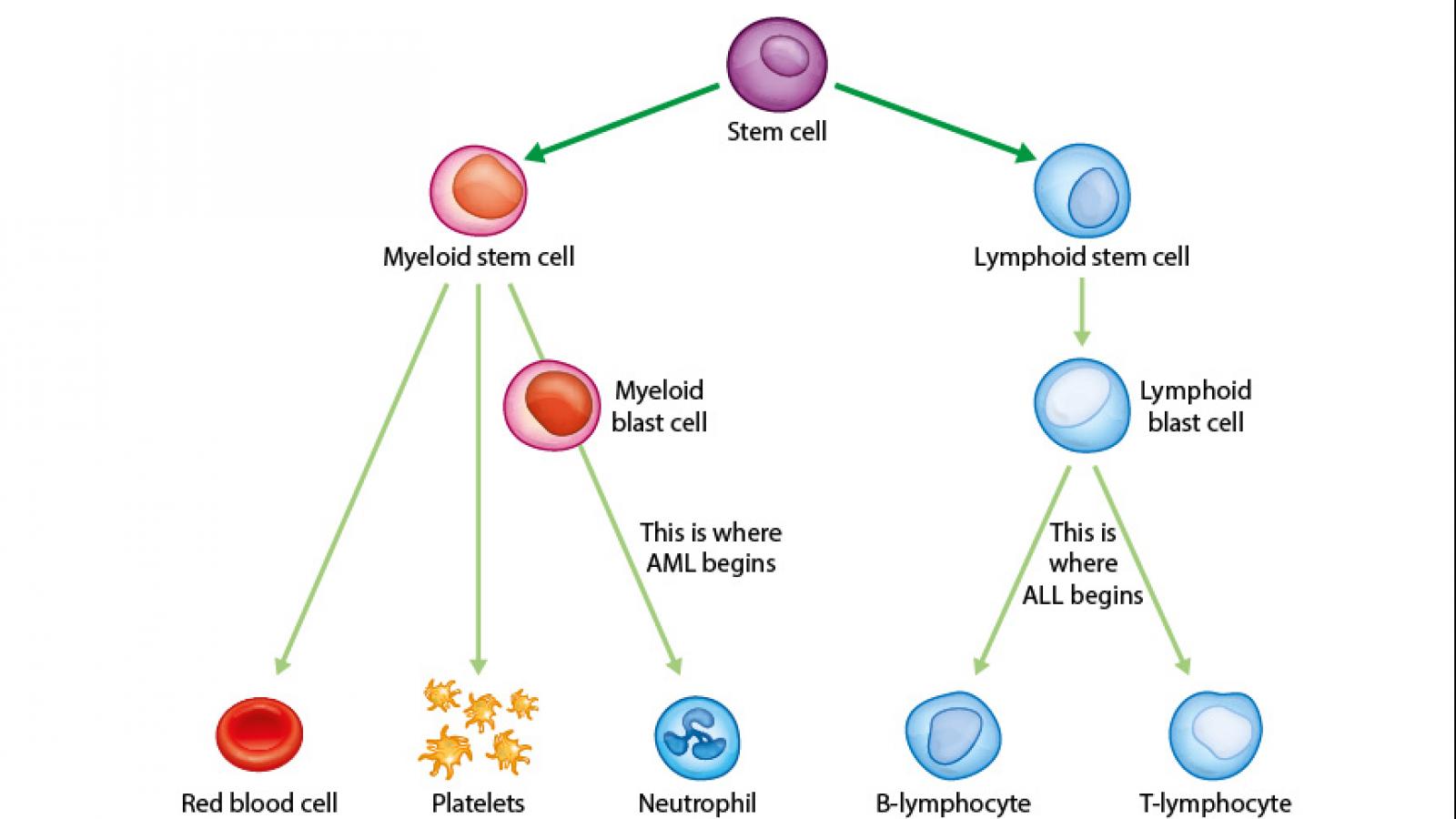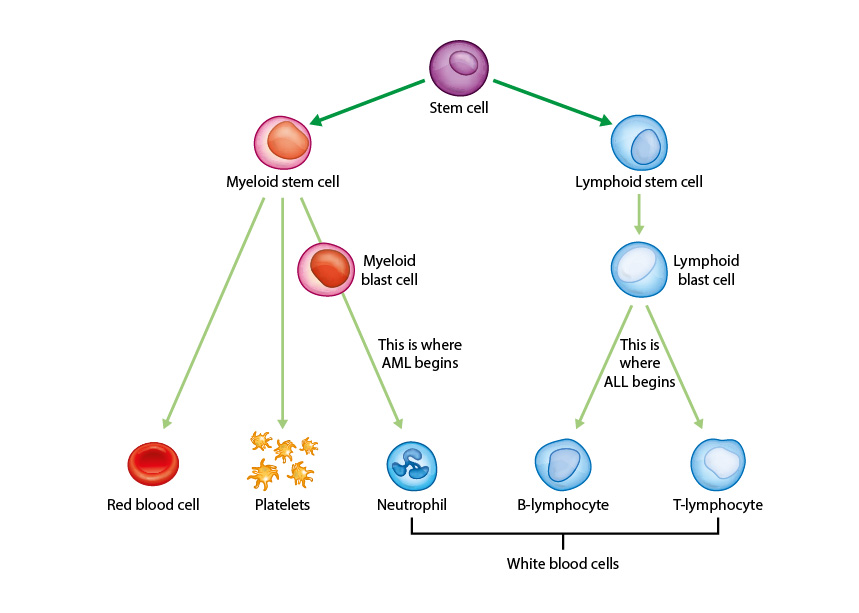About leukaemia

What is leukaemia?
Leukaemia is a cancer that affects your blood. To understand leukaemia it helps to understand a bit about how blood cells are made.
Blood cells
There are 3 main types of blood cells:
- Red blood cells carry oxygen to all the tissues in your body.
- White blood cells are involved in fighting infection.
- Platelets form clots which stop you from bleeding.
All blood cells come from cells known as stem cells. These start out as immature cells (blast cells) and then they develop into different types of mature blood cells.
- Lymphoid stem cells develop into lymphocytes. Lymphocytes are white blood cells that fight infection. They are further divided into T-cells and B-cells, depending on how they fight infection.
- Myeloid stem cells go on to form red blood cells, platelets and some types of white blood cells.
New blood cells are normally made in your bone marrow. Bone marrow is the soft spongy tissue that fills the centre of some of your bones. New cells move out of your bone marrow and into your blood. Old cells are replaced when needed. With leukaemia, this process of making and replacing blood cells goes wrong.
About leukaemia
Your bone marrow is constantly producing enough blood cells to keep up with the demands of your body, such as carrying oxygen around the body and fighting infection. A healthy marrow makes over 600 billion red, white and platelet cells every day.
Patients with leukaemia have abnormal blood cells that grow out of control, filling up the bone marrow and preventing normal blood cells from being made. This changes the normal balance of good healthy cells in your blood. You get sick because there aren’t enough healthy blood cells to do their jobs in the body and the increasing number of leukaemia cells are a burden on your system.
Types of leukaemia
There are four main types of leukaemia:
Their names come from the type of cell affected by the leukaemia (myeloid or lymphoid) and from how quickly they develop (chronic or acute).
Chronic leukaemia
The disease develops slowly, usually over months or years.
Acute leukaemia
The leukaemia develops quickly, over days or weeks.
For more information
Phone
1800 200 700



